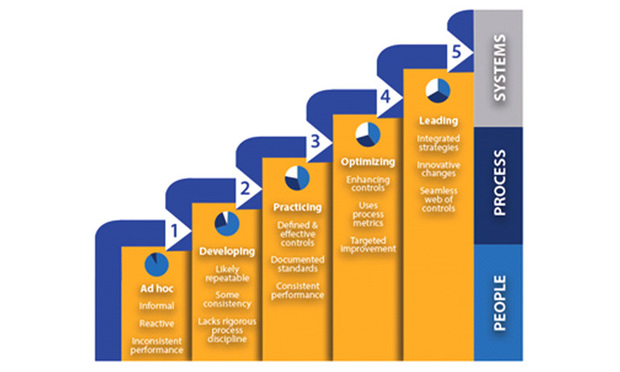Can Driverless Compliance Programs Be Effective? One CECO's Perspective on AI
Our building blocks are: leadership, risk assessment, standards, training, awareness and monitoring. How a company executes these building blocks is the complicated part.
May 01, 2018 at 04:31 PM
6 minute read

I've worked at Walmart for nearly six years now. Every day I'm impressed by the people on my team and the leadership at the company. They challenge me to do my best every day. When I thought about this article, I thought about those people and how important they are to the company. Walmart has always been a company focused on people—whether it's delivering everyday low cost to our customers, or recognizing the great people we have working in our stores around the globe.
People at Walmart make the difference. Our people are guided and driven by our values—integrity being a key value for our over 2.3 million associates. When I think about artificial intelligence (AI), I am proud of the ways we are currently leveraging AI to have a better understanding of how our data works together and am excited about the opportunities to leverage AI in the future. However, it is important to remember, it will always be our people that make our company successful.
We think about our compliance program framework in terms of people, processes and systems. We built our program using “building blocks” that are mapped to different regulatory processes. Many companies go through the same exercise of regulatory mapping, but we tried to make our building blocks simple in the hope that our program efforts will be sustainable and easier to embed in the business. Our building blocks are: leadership, risk assessment, standards/controls, training, awareness, and monitoring/audit/response.
These building blocks address: (1) designing and defining our compliance goals; (2) formulating rules, principles, and assessing the risk; (3) implementing the program/rules and principles; and (4) monitoring and remediating identified violations.

This is all in the regulatory guidance and fairly straightforward, but how a company executes these building blocks effectively is more complex.
Design is important. If you get the design right, it makes everything else easier. So, when we plan our long-term strategy, we think about the business strategy. I've done that throughout my career, whether working in oilfield services in Africa or retail in Bentonville. What works for one company may not work for another. Thinking about people, process and systems has helped us ensure that our program efforts are in sync with the business strategy.
Five years ago, when I started in retail, I drew a series of circles—thinking about program maturity—using this framework. Inside the circles were three slices of a pie that represented people, process and systems.
I think about that systems piece of the pie when I think about artificial intelligence. As our program has matured, so has our use of technology. We now have a system to document and track thousands of licenses internationally in real time. We have a tool that uses spatial analytics to display data feeds from several different platforms in an interactive map. We have systems for training and monitoring. These tools help us automate processes, add speed, and eliminate repetitive, low-value activities, but they still rely on human judgment and design.
Working in over 60 countries in seven different industries, I have learned that design can be 80 percent of the problem or 80 percent of the solution. The design of a program varies depending upon the culture of the company, the values, the ways of doing business, the history of the company, the demographics, and the background of the employees that work in it.
Our technology piece of the pie has grown, but in my mind, people will always be there. One of my friends was telling me about this show on HBO called Westworld where robots seem to have a mind of their own and make decisions.
I think of artificial intelligence similarly to how my friend described that show. That would be one end of the spectrum—computers functioning with little human input (or in some cases on the show, no human input). For compliance, people are important, and our ethics program is a big part of our compliance culture. Somewhere in the middle of the artificial intelligence spectrum (where, on the one end, is a simple tool, and on the other end is Westworld) is where some of the tools that we use in our e-commerce compliance fall, such as image recognition for screening items. However, those tools rely on people to set up the rules and tell the computer what is permitted and what is not.
At the end of the day, for compliance, people and judgment are always part of the circle. I cannot imagine an effective program without human observation, study and analysis of how a company and its employees work together.
Can artificial intelligence help us identify symptoms of things that may not work well? The answer is yes. The companies of the future are going to be organized differently, and the fluidity of their structures will be paramount. As leaders in compliance, we have to ensure that we keep placing design as a relevant part of the agenda, using technology but not eliminating the value that great talent brings to the table.
Daniel Trujillo is the Senior Vice President and Chief Ethics & Compliance Officer for Walmart International. He joined Walmart in 2012, leading a rapidly expanding division that spans over 27 countries outside the United States. In his role, Daniel supports over 750,000 Walmart International employees with an organization that includes over 1,700 ethics and compliance professionals spread across the world, managing 14 different subject matters. Originally from Argentina, Daniel speaks five languages and has worked in over 60 countries on five continents—addressing compliance areas ranging from anti-corruption to trade. Before joining Walmart, he served as Deputy General Counsel and Director of Compliance at Schlumberger Ltd.—a global supplier of technology, integrated project management, and information solutions for customers working in the oil and gas industry. He previously worked at Cargill and Impregilo S.p.A.
Daniel graduated from the University of Buenos Aires Law School and went on to complete a Master of Business Administration (MBA) at Salvador University (Argentina) and Deusto (Spain), as well as a Master of International Commercial Law (LLM) at University of California, Davis.
This content has been archived. It is available through our partners, LexisNexis® and Bloomberg Law.
To view this content, please continue to their sites.
Not a Lexis Subscriber?
Subscribe Now
Not a Bloomberg Law Subscriber?
Subscribe Now
NOT FOR REPRINT
© 2025 ALM Global, LLC, All Rights Reserved. Request academic re-use from www.copyright.com. All other uses, submit a request to [email protected]. For more information visit Asset & Logo Licensing.
You Might Like
View All
Internal GC Hires Rebounded in '24, but Companies Still Drawn to Outside Candidates
4 minute read
Inside Track: Cooley's Modest Proposal to Make Executives Safer

GOP Now Holds FTC Gavel, but Dems Signal They'll Be a Rowdy Minority
6 minute read
Trending Stories
- 1Eliminating Judicial Exceptions: The Promise of the Patent Eligibility Restoration Act
- 2AI in Legal: Disruptive Potential and Practical Realities
- 3One Court’s Opinion on Successfully Bankruptcy Proofing a Borrower
- 4Making the Case for Workflow Automation
- 5Copyright Infringement by Generative AI Tools Under US and UK Law: Common Threads and Contrasting Approaches
Who Got The Work
J. Brugh Lower of Gibbons has entered an appearance for industrial equipment supplier Devco Corporation in a pending trademark infringement lawsuit. The suit, accusing the defendant of selling knock-off Graco products, was filed Dec. 18 in New Jersey District Court by Rivkin Radler on behalf of Graco Inc. and Graco Minnesota. The case, assigned to U.S. District Judge Zahid N. Quraishi, is 3:24-cv-11294, Graco Inc. et al v. Devco Corporation.
Who Got The Work
Rebecca Maller-Stein and Kent A. Yalowitz of Arnold & Porter Kaye Scholer have entered their appearances for Hanaco Venture Capital and its executives, Lior Prosor and David Frankel, in a pending securities lawsuit. The action, filed on Dec. 24 in New York Southern District Court by Zell, Aron & Co. on behalf of Goldeneye Advisors, accuses the defendants of negligently and fraudulently managing the plaintiff's $1 million investment. The case, assigned to U.S. District Judge Vernon S. Broderick, is 1:24-cv-09918, Goldeneye Advisors, LLC v. Hanaco Venture Capital, Ltd. et al.
Who Got The Work
Attorneys from A&O Shearman has stepped in as defense counsel for Toronto-Dominion Bank and other defendants in a pending securities class action. The suit, filed Dec. 11 in New York Southern District Court by Bleichmar Fonti & Auld, accuses the defendants of concealing the bank's 'pervasive' deficiencies in regards to its compliance with the Bank Secrecy Act and the quality of its anti-money laundering controls. The case, assigned to U.S. District Judge Arun Subramanian, is 1:24-cv-09445, Gonzalez v. The Toronto-Dominion Bank et al.
Who Got The Work
Crown Castle International, a Pennsylvania company providing shared communications infrastructure, has turned to Luke D. Wolf of Gordon Rees Scully Mansukhani to fend off a pending breach-of-contract lawsuit. The court action, filed Nov. 25 in Michigan Eastern District Court by Hooper Hathaway PC on behalf of The Town Residences LLC, accuses Crown Castle of failing to transfer approximately $30,000 in utility payments from T-Mobile in breach of a roof-top lease and assignment agreement. The case, assigned to U.S. District Judge Susan K. Declercq, is 2:24-cv-13131, The Town Residences LLC v. T-Mobile US, Inc. et al.
Who Got The Work
Wilfred P. Coronato and Daniel M. Schwartz of McCarter & English have stepped in as defense counsel to Electrolux Home Products Inc. in a pending product liability lawsuit. The court action, filed Nov. 26 in New York Eastern District Court by Poulos Lopiccolo PC and Nagel Rice LLP on behalf of David Stern, alleges that the defendant's refrigerators’ drawers and shelving repeatedly break and fall apart within months after purchase. The case, assigned to U.S. District Judge Joan M. Azrack, is 2:24-cv-08204, Stern v. Electrolux Home Products, Inc.
Featured Firms
Law Offices of Gary Martin Hays & Associates, P.C.
(470) 294-1674
Law Offices of Mark E. Salomone
(857) 444-6468
Smith & Hassler
(713) 739-1250






